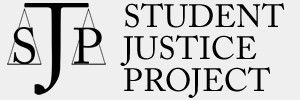October 15, 2013
I am a current Stanford undergraduate who went through a process with the Judicial Affairs Office (subsequently renamed the Office of Community Standards) in a school year prior to the current one. Although I was completely innocent and no charges were ever brought against me after I was initially informed that I was one of a few students believed to have possibly violated the honor code on an exam, my experience was incredibly stressful and distracting. Furthermore, my experience led me to conclude that the process by which students are treated by the Office of Community Standards (OCS) is inherently flawed and is in serious need of review and change to ensure that all students are treated fairly and equitably.
From the outset and throughout all of my dealings with the OCS, I felt that I was involved in an adversarial process in which I was guilty before being proven innocent rather than innocent until being proven guilty. I felt this way because significant exculpatory evidence and the identity of an accusing witness were not disclosed to me until just prior to the time that I was fully exonerated, many months after I was first notified that there was even an issue. Throughout my dealings with the OCS, I lived in fear of being charged and found guilty when I was innocent. And how could I not feel this way when my accuser could remain anonymous and not be subject to cross-examination, a most basic right in any fair and equitable proceeding? In fact, there is no provision for anonymous witnesses in Stanford’s 1997 Student Judicial Charter and the Charter and a bylaw mandate that witnesses must cooperate, and yet the OCS ignored this requirement for far too many months. Fortunately for me, my case was dropped almost immediately after the anonymous witness finally came forward and made a written statement and other significant exculpatory evidence was disclosed. No student, innocent or guilty, should be subjected to such a process!
I was fortunate to have been guided through my dealings with the OCS by both my father and an attorney who he hired to represent me, and I have often wondered if my result would have been different notwithstanding my innocence if I had not had the benefit of their advice and counsel. In fact, I do not believe that a student without representation could possibly understand and self-advocate their rights under the 1997 Student Judicial Charter, and I believe that every student should be offered some type of 3rd party representation when dealing with the OCS. What would have happened to me if I hadn’t felt comfortable involving my parents in the process? And what would have happened if they couldn’t afford to hire an attorney at considerable expense to represent me? The rights of a less fortunate student – perhaps one who is on financial aid, which I am not – should never be compromised. And any suggestion that the Judicial Adviser assigned to one’s case is all that is needed to protect such students from any inequities is nonsense in light of the fact that they advise both the accused and reporting parties and they themselves tell you that anything you say may be shared by them with the Judicial Officer assigned to your case.
Current Stanford Student
